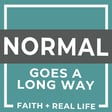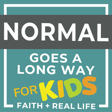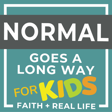
72: What To Do With A Calling You've Heard From God
Trisha Welstad began the Leadership Center coaching and consulting organization in 2012. She received a doctorate in Leadership from Portland Seminary in 2020 and is an ordained pastor and coach with over twenty years of experience. Trisha’s background in leadership includes facilitating staff teams as the lead executive, serving as the director for leadership development in organizations in Oregon and Los Angeles, teaching at the collegiate, graduate, and doctoral level in practical leadership, and facilitating the Institute for Pastoral and Congregational Thriving at Portland Seminary as a grant writer and Executive Director, as well as volunteering locally with her family.
Trisha’s vision for the world is for all people to activate their unique identity and calling, welcoming one another to play and work together in mutually honorable, hospitable and generous ways that create healthy and sustainable relationships with God, self, others, and the planet. Laura Fleetwood sat down with Trisha to chat about the vision Trisha has for the world.
IG: Leadershipcenter.co
FB: facebook.com/Leadershipcenter.co
Website: leadershipcenter.co
Normal Goes A Long Way Website: https://www.normalgoesalongway.com/
Normal Goes A Long Way Instagram: https://www.instagram.com/normalgoesalongway/
Normal Goes A Long Way Facebook: https://www.facebook.com/Normal-Goes-A-Long-Way-110089491250735
Normal Goes A Long Way is brought to you by Messiah St. Charles: https://messiahstcharles.org/
Two Kids and A Career: https://www.jilldevine.com/podcast


